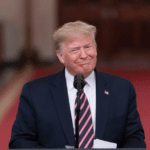



The Federal Communications Commission (FCC) has voted to restore net neutrality rules, reigniting debates over internet governance. The restoration of net neutrality regulations marks a contentious pivot back to Obama-era policies.
Breitbart reported that the FCC's decision was influenced by its current Democrat majority, who advocate for regulations that prohibit internet service providers (ISPs) like Comcast and Verizon from blocking, throttling, or prioritizing internet traffic for financial gain.
These rules had been dismantled under the Trump administration by former FCC Chairman Ajit Pai.
Net neutrality's reinstatement has drawn criticism from various quarters, notably from Republican FCC Commissioner Brendan Carr. Carr has termed the decision a "power grab" and an "unlawful overreach" by the administrative state, suggesting it may not stand legal scrutiny.
Amidst the policy shift, progressives have defended the reinstatement, pointing to the detrimental predictions that did not transpire when the rules were previously repealed. They argue that despite improvements in broadband speeds, the absence of net neutrality posed risks to fair internet access.
Despite the focus on ISPs, concerns about the power of big tech companies continue to surface. During disputes over state legislation in California, Google notably blocked access to certain news outlets, an action that highlights broader issues of online content control beyond ISPs.
Commissioner Carr expressed concerns that the renewed focus on net neutrality overshadows the need to address larger threats to internet freedom posed by big tech firms, suggesting a misalignment in regulatory focus.
Data referenced by opponents of net neutrality, like Adam Brandon of FreedomWorks, underscore the resilience of ISPs during the 2020 pandemic, which saw a surge in online traffic. Brandon emphasized that the internet service remained robust without net neutrality, questioning the necessity of its restoration.
Further criticism came from James Czerniawski of Americans for Prosperity, who likened the FCC's move to "Bidenomics for the web," predicting that it would lead to increased costs, limited choices, and stifled innovation in the internet sector.
FCC Commissioner Brendan Carr, in an interview with Breitbart News, described net neutrality as a concept that serves more as a political tool than a practical regulatory framework. "Net neutrality represents a leftist power grab by the administrative state," Carr stated.
Allum Bokhari, a former Breitbart News reporter, highlighted a perceived inconsistency in regulatory focus. According to Bokhari, Democrats are pushing for regulations on ISPs, which he claims do not suppress users based on political views, unlike some big tech platforms.
As debates continue, the implications of reinstating net neutrality are under scrutiny. Critics argue that the move may reverse the advancements in internet service quality observed in recent years.
"Bringing back net neutrality will harm the increased broadband speeds and lower prices America experienced without net neutrality," Carr warned, reflecting a widespread concern among opponents of the policy.
In their push for regulatory changes, proponents of net neutrality argue for the protection of consumer rights and equal access to information, while critics caution against excessive government intervention that could hamper technological advancement and economic efficiency.
James Czerniawski added a critical perspective on the FCC's priorities, suggesting that efforts should instead focus on expanding spectrum authority and closing the digital divide, rather than reviving divisive regulatory frameworks.
The reinstatement of net neutrality by the FCC has rekindled a fiery debate on the balance between government regulation and market freedom in the internet arena. With arguments split along partisan lines, the future of internet governance remains uncertain as stakeholders from various sectors weigh in on the potential impacts of this pivotal regulatory approach.



